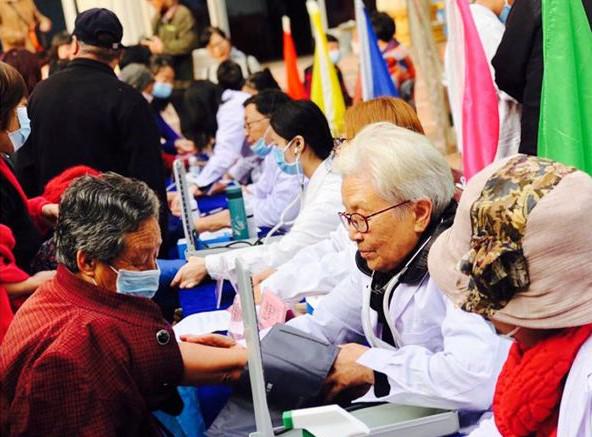"Christians should preach the gospel by participating in social services." Many Christians who are enthusiastic about charity work may hear and agree with this argument. However, Cao, who has served in a charity for many years, gave a very different view, "evangelism and social actions are distinct activities, and cooperation but not integration is the proper relationship between church and charity."
The separation of social service from evangelism
More than ten years ago, Cao began to be involved in social charity. Now, he is the head of a charity that helps the disabled and the needy, and he is also an influencer in the local charity circle.
Over the years, the charity has mainly devoted itself to the service and care of disabled groups and has helped hundreds of local people and families of those with physical disabilities, hearing impairment, visual impairment, and mental retardation, aiding them in social care, recuperation and integrating back into society.
Although most of the core workers are Christians, they never mentioned their beliefs when carrying out services. "As a non-profit organization, we need to keep a distance from the faith and the church." He told the author, "But as individuals, we are all children of God."
"Non-profit organizations carry out projects for all of society and will face all kinds of people who have different tolerance levels." For this reason, Cao's organization has been downplaying its faith background in recent years.
Cao believes church and charity have different duties and purposes, and it's reasonable to separate these two. Also, the separation protects both sides.
"Charities focus more on providing material and emotional care for vulnerable groups and help them solve problems," he said. "However, spiritual care is not our duty, and it can only be undertaken by the church."
In his own opinion, charities can be the "intermediary" between disadvantaged groups and the church, but can't be the "window" for direct evangelism. "If the recipients seek spiritual help, we can introduce them to pastors and help them get into the church, but as a nonprofit organization, we can't directly tell them how good it is to believe in the Lord ."
Similarly, Cao insists that Christians and volunteers are different in nature, which should not be confused. Preaching the gospel and carrying out the great mission is undoubtedly the first duty of Christians. However, the duty of volunteers is to serve people. "The focus of social services should be recipients, not helpers, the motive for serving should be 'what you need', not 'what I want to give'", he added.
Although Cao stressed the separation between "evangelism" and "social service", he never denied the value and significance of Christians' participation in social service. "Participating in social service can help us to practice humility and turn the focus of love from ourselves to God. We should serve others from God's perspective not our own limited perspective. Also, through practical actions of serving vulnerable groups, Christians can show the glorious image of Christ and testify to society. "
Seek a Wiser Union
For more than ten years, Cao's organization has extensively carried out projects to help the disabled. They have not only cooperated with Christians and churches but also closely worked with volunteers of other faiths and social organizations. Their projects progressed smoothly, and both volunteers and recipients had very beautiful and moving memories.
"In social actions, the cooperation between charities and social groups is completely feasible and blameless," Cao said. However, for both parties to maintain independence and participate and carry out the project in an orderly and compliant manner, a more intelligent strategy is needed.
Cao used the charity ministry of the church as an example. Due to the lack of personnel, the need for vulnerable believers in grass-roots churches can not be met. In this case, church and charity can cooperate. "Charities can send social workers and volunteers to assist the church in providing more detailed and professional care services, and the church can fulfill its duty of caring for church members."
Besides, Cao believes church and charity can also cooperate in finance. The church can indirectly contribute to helping socially disadvantaged groups or people in remote areas by entrusting its donation to non-profit organizations, which fulfills the church's social responsibility without causing unnecessary misunderstandings.
In recent years, staff in Cao's organization, who were closely related to the church, have gradually "decoupled" and withdrawn from management positions. Recently, however, he has found a new way of connecting with professionals in the Christian community. A Christian lawyer and a Christian social worker who has engaged in intellectual property protection might be expected to be the new directors of the charity.
"With the participation of these professionals, we hope to establish a more professional and socially recognized social service system, so as to help the majority of vulnerable groups more comprehensively."
- Translated by Oliver Zuo













